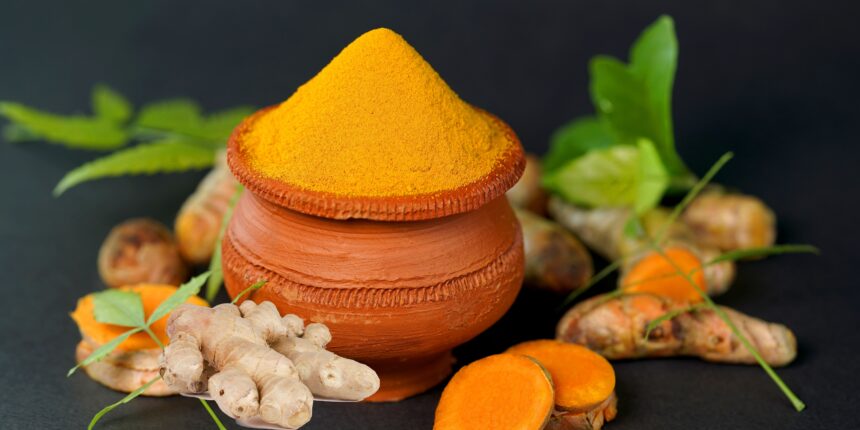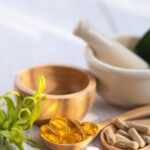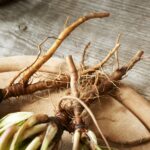What is the most powerful herbal?
The most powerful herbal depends on the desired outcome. Some of the most potent herbs include:
- Turmeric: Anti-inflammatory, antioxidant, and antimicrobial
- Ginger: Anti-nausea, anti-inflammatory, and pain-relieving
- Ginkgo biloba: Improves blood circulation, memory, and cognitive function
- Echinacea: Boosts the immune system and fights infections
- Valerian root: Promotes relaxation and sleep
The most powerful herbal:
The most powerful herbal depends on the desired outcome. Some of the most potent herbs include:
Turmeric
Turmeric, a spice, has been utilized in traditional medicine for millennia. It is a powerful anti-inflammatory, antioxidant, and antimicrobial agent. Turmeric has been shown to be effective in treating a variety of conditions, including arthritis, cancer, and heart disease.
Ginger
Ginger is another spice that has been used in traditional medicine for centuries. It is a powerful anti-nausea, anti-inflammatory, and pain-relieving agent. Ginger has been shown to be effective in treating a variety of conditions, including nausea, vomiting, and pain.
Ginkgo biloba
Ginkgo biloba is a tree that has been used in traditional medicine for centuries. It is a powerful antioxidant and circulatory stimulant. Ginkgo biloba has been shown to be effective in treating a variety of conditions, including memory loss, dementia, and tinnitus.
Echinacea
Echinacea is a plant that has been used in traditional medicine for centuries. It is a powerful immune booster and antiviral agent. Echinacea has been shown to be effective in treating a variety of conditions, including colds, flu, and infections.
Valerian root
Valerian root is a plant that has been used in traditional medicine for centuries. It is a powerful sedative and hypnotic agent. Valerian root has been shown to be effective in treating a variety of conditions, including insomnia, anxiety, and stress.
Other powerful herbs
In addition to the herbs listed above, there are a number of other powerful herbs that can be used to treat a variety of conditions. These herbs include:
- Astragalus: Boosts the immune system and protects against infections
- Ashwagandha: Reduces stress and anxiety, and improves cognitive function
- Boswellia: Reduces inflammation and pain
- Chamomile: Promotes relaxation and sleep
- Hawthorn: Improves heart health and blood circulation
- Licorice root: Soothes the digestive tract and reduces inflammation
- Nettle: Detoxifies the body and improves kidney function
- Peppermint: Relieves nausea, vomiting, and indigestion
- Rosemary: Improves memory and cognitive function
- St. John’s wort: Treats depression and anxiety
How to use herbs
Herbs can be utilized in many different ways, including:
- Teas: Herbs can be steeped in hot water to make a tea.
- Tinctures: Herbs can be extracted in alcohol to make a tincture.
- Capsules: Herbs can be encapsulated for easy consumption.
- Powders: Herbs can be pounded into a powder and mixed with food or beverages.
Safety considerations
Herbs are generally safe to use, but there are some potential side effects. It is important to talk to your doctor before using any herbs, especially if you are pregnant, breastfeeding, or have any medical conditions.
How to make herbal teas
To make herbal tea, you will need:
- 1-2 teaspoons of dried herbs
- 1 cup of boiling water
- A tea infuser or strainer
- A mug
Instructions:
- Put the dry herbs in a tea infuser or sieve.
- Pour the boiling water over the herbs.
- Steep the tea for five to ten minutes, or according to package instructions.
- Remove the tea infuser or strainer and enjoy your tea.
You can also add honey, sugar, or milk to your tea to taste.
Common side effects of using herbs
Most herbs are safe to use, but there are some potential side effects. These side effects can vary depending on the herb, the dose, and the individual.
Some common side effects of using herbs include:
- Nausea
- Vomiting
- Diarrhea
- Constipation
- Headache
- Dizziness
- Skin rash
- Allergic reactions
Herbs to avoid during pregnancy
There are some herbs that should be avoided during pregnancy, as they can cause miscarriage or other complications. These herbs include:
- Aloe vera
- Black cohosh
- Chamomile
- Dong quai
- Ephedra
- Evening primrose oil
- Fennel
- Garlic
- Ginger (in large doses)
- Ginseng
- Goldenseal
- Licorice root
- Pennyroyal
- Rue
- St. John’s wort
- Tansy
- Thyme
- Valerian root
- Yohimbe
It is critical to consult your doctor before using any herbs while pregnant.
Conclusion
Herbs can be a powerful tool for improving your health and well-being. However, it is important to use herbs safely and to talk to your doctor before using any herbs, especially if you are pregnant, breastfeeding, or have any medical conditions.




